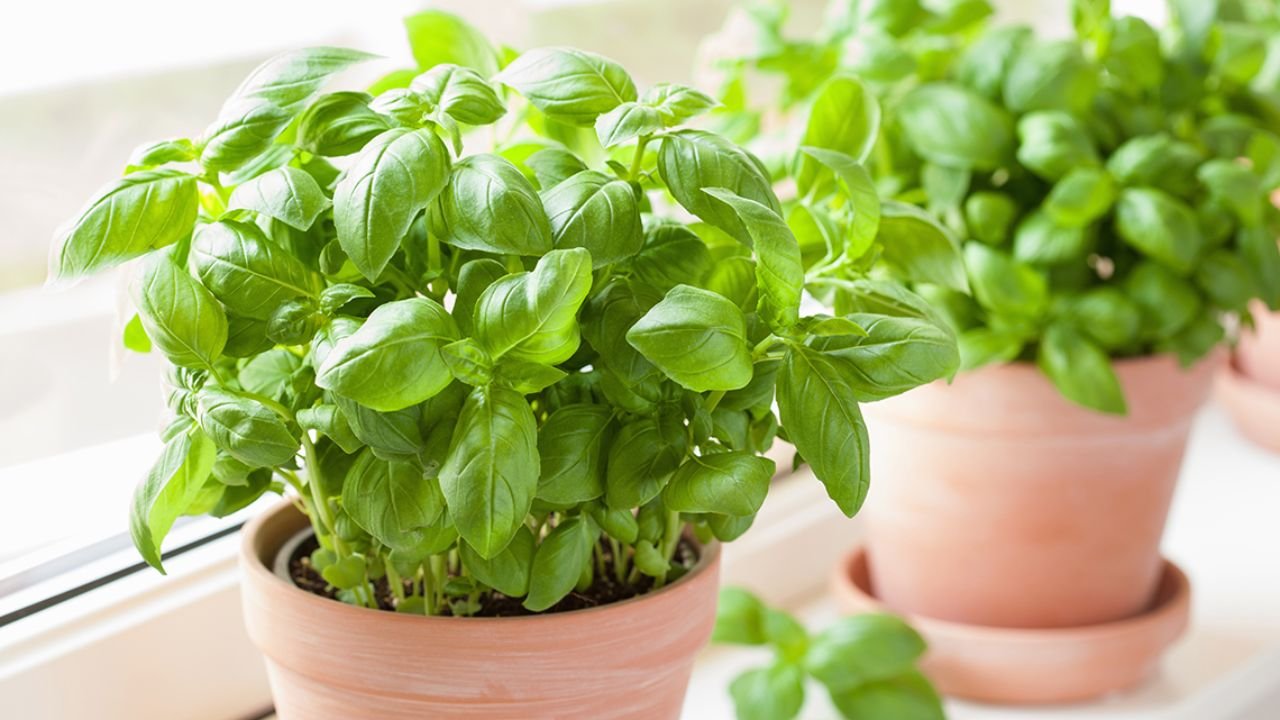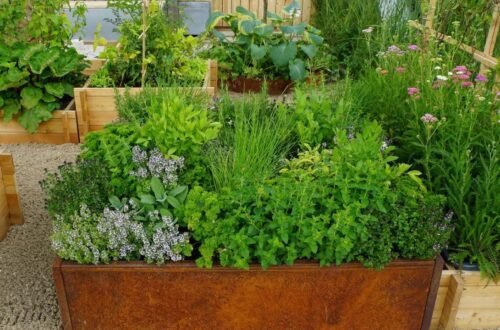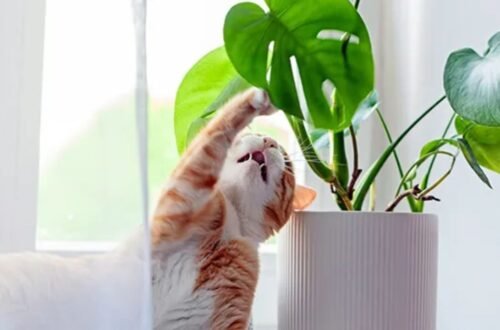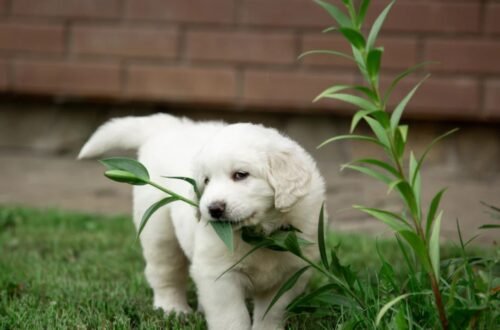When it comes to health foods and kitchen healing, the question most of the people will frequently ask is, what are herbs? It raises an exciting question about the world of useful plants that are equally surrounded by old-style and current life. Herbs are small plants that are not woody and are excellently known as the perfumed plants, used in medicines as well as in eating. These are usually applied in cooking, medicines and even makeup. Whether it is your kitchen garden to earliest healing does such as Ayurveda and Chinese medicine, herbs are important.
But then what are herbs? Logically, herbs are stated to be plants that never develop stems of wood and most of the time they die to ground level after peak. The herb are fast-growing and have a short life cycle that usually lasts a single season, with the herb being collected typically because of their leaves, flowers, or roots. These are different to plants or trees with permanent woody personnel.
Name Some Herbs That Are Commonly Used
If you’ve ever wondered, “name some herbs used in daily life,” you’d be surprised to find out how many you already know. Herbs are not rare; they are found in almost every kitchen and medicine cabinet.
Here are some examples of commonly used herbs:
| Herb Name | Use Case | Common Form |
| Basil | Cooking (Italian dishes, sauces) | Fresh or dried leaves |
| Mint | Refreshing drinks, digestion | Fresh leaves, oil |
| Coriander | Curry and spice blends, garnishing | Leaves and seeds |
| Thyme | Roasted meats, soups | Dried sprigs |
| Chamomile | Herbal tea, relaxation aid | Dried flowers |
| Rosemary | Grilled dishes, memory booster | Needles, oil |
| Sage | Cold remedies, stuffing, cleansing | Dried leaves |
| Lemongrass | Soups, teas, aromatherapy | Fresh stalks |
When someone asks you to name some herbs, these popular options provide a great starting point. You can grow many of these at home or buy them in supermarkets or herbal stores.
What Is the Difference Between Herbs and Flowering Plants?
Next in line is another usual question that comes up: what is the distinction between herbs and flowers? While many herbs do bloom in flowers, not all flowering plants are herbaceous. But knowing plant classification comes in handy here.
Let’s straighten this out. Herbs are plants with soft, green and non-woody stems. They usually live for only one season or a short period of time. Whereas “flowering” is a more general term for all plants where flowers are produced—this group comprises herbs, shrubs, trees and climbing plants.
Here’s a detailed comparison to clarify what is the difference between herbs and flowering plants:
| Feature | Herbs | Flowering Plants |
| Stem Type | Soft, green, non-woody | Can be soft (herbs) or woody (trees/shrubs) |
| Lifespan | Usually short (seasonal) | Can be short, medium, or long-lived |
| Flower Presence | May have small flowers | Always have flowers |
| Uses | Culinary, medicinal, cosmetic | Wide-ranging: decorative, fruit-bearing, etc. |
| Examples | Basil, Mint, Coriander | Rose, Sunflower, Mango tree, Basil |
So, what is the difference between herb and flowering plants? In simple words, all herbs can be flowering plants, but not all flowering plants are herbs. Herb are just one category under the broad umbrella of flowering plants.
Why Should You Care About Herbs?
Learning about herbs and their differences with other plants is something that every person who is concerned with cooking, wellness, or gardening must know. Herbs have no calorie content like sauces or artificial flavors, and they provide natural flavor. Herbs used as medicine are beneficial for enhancing immunity, anti-infection, and well-being. It can immensely add to your lifestyle to learn the names of some herbs and know how to use them.
Moreover, asking what is the difference between herbs and flowering plants isn’t just a botanical question—it’s also a practical one. Knowing which plants are herbs helps you choose the right plant for cooking, healing, or decoration. Herb are easier to grow, require less space, and mature quickly, making them ideal for small gardens or balcony pots.
Powerful Health Benefits of Herbs
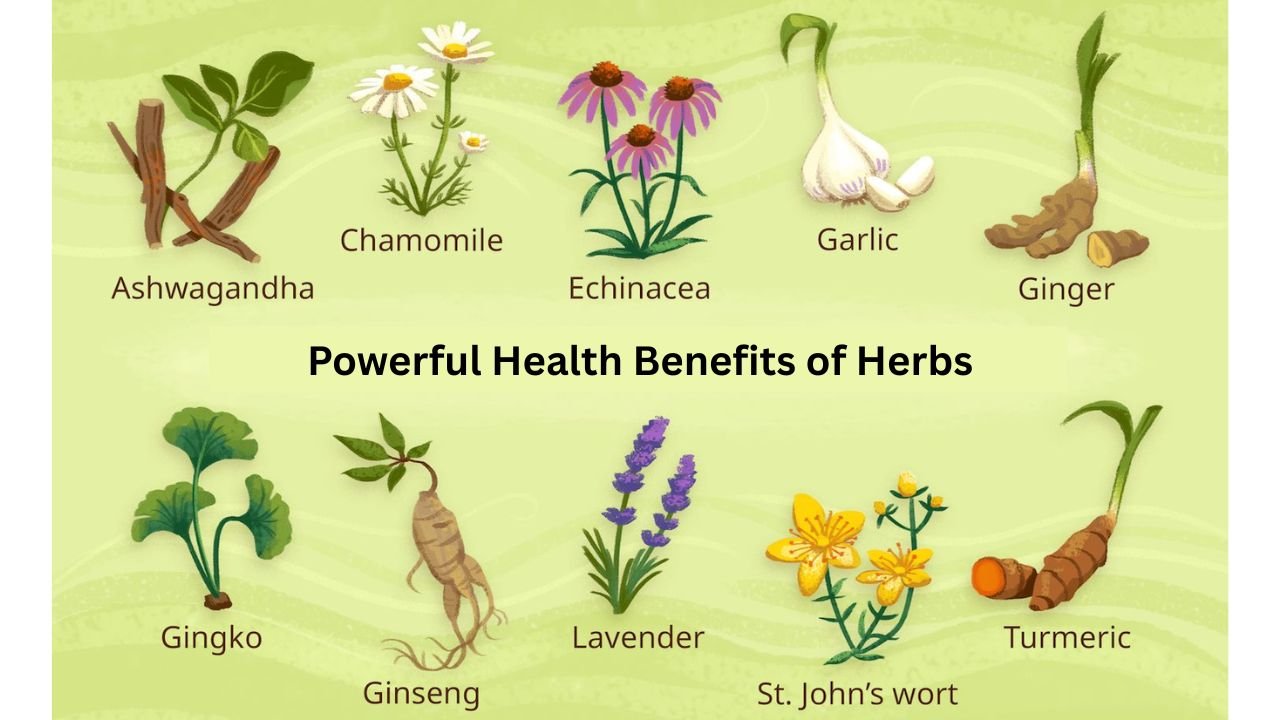
By regularly eating herbs, it is possible to prevent and treat diseases such as heart issues, cancer and diabetes. Other herb might inhibit clotting of blood and contain properties that prevent swelling and tumor-fighting ability. The investigation continues, but according to one research, it reveals:
- Taking garlic, linseed, fenugreek, and lemongrass is supposed to reduce bad cholesterol.
- Garlic helps hypertensive individuals who have relatively high blood pressure.
- Fenugreek, flaxseed, cinnamon, and linseed could contribute to regulating the blood sugar level and insulin.
- Some of the vegetables that have been found to avert cancer are garlic, onion, chives, leeks, mint, basil, oregano and sage.
- Herbs such as clove, cinnamon, sage, oregano, and thyme are antioxidants.
Antioxidant levels are often greater in fresh herb than in dried herbs or processed herb. In order not to lose their health benefits, you should attempt to add fresh herb either at the end of the cooking process or just before serving.
Simple Tips for Cooking with Herb
- Dried herbs have a stronger flavour than fresh ones. A common rule is: use 1 teaspoon of dried herbs for every 4 teaspoons of fresh herbs.
- You can make a small bunch of herbs (called a bouquet garni) by tying fresh herb in a small cloth bag. Add it to your dish while cooking, then remove it before eating.
- Some herb like rosemary and parsley are strong and hold their flavour well during cooking. Add these early in the cooking process.
- Some herbs, like bay leaves, are only used for flavour. They are not meant to be eaten, so remove them before serving.
- Dried herbs lose flavour after about 12 months, so it’s best to replace old ones every year.
- Whole herbs (with the leaves still on the stalk) often have better taste than powdered herb from jars or packets.
Final Thoughts
To sum it up, understanding what herbs are and how it is possible to learn to call some of them by name, as well as what is the difference between herbs and flowering plants?, can add to your knowledge and help to make your everyday life better. Herbs are potent, multipurpose, and simple to cultivate. They introduce healing, sweet taste, and sweet aroma into your house naturally.
But regardless of whether you are a student, a chef, or simply inquisitive, having the knowledge that separates herb and other plants helps you appreciate green life all around you. Begin with simple everyday herb and you will soon find that they can make a myriad of quantitative and qualitative changes to your life.
